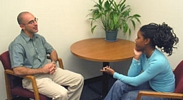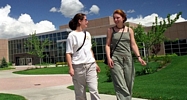There is a public perception that “health and safety” prevents or prohibits many things previously part of our day to day lives. You need look no further than reports of schools banning conker fights, councils banning hanging baskets and the many health and safety myths that have appeared over the years.
In reality, health and safety does actually work, and is saving lives and preventing injuries around the world, every minute of every day. Before health and safety legislation came on the scene in the UK, children as young as 5 were employed in heavy industry along side men and women. It is within living memory that small children were employed in occupations such as chimney sweeps, there being little if any concern about their health and well being.
Despite strong opposition, Lord Shaftsbury and Charles Dickens were responsible for bringing matters before parliament, which resulted in legislation designed to protect workers. Although this was a major break through, the legislation was restricted in that it only applied to certain workplaces, machinery and practices.
Until the 1960's, UK health and safety legislation was very much piecemeal and reactive, tending to deal with known hazards and problems highlighted after major incidents or disasters. In the late 60's parliament set up a commission to look into all aspects of health and safety, the commissions findings resulted in the Health and Safety at Work etc Act 1974 (HASAWA), which came into force in 1975. This formalised the duty of every employer to ensure, so far as is reasonably practicable, the health, safety and welfare at work of all his employees.
Since the HASAWA, all subsequent health and safety legislation has followed the pattern of setting down only basic principles in law. An Approved Code of Practice (ACOP) is also issued which details how to comply with the regulation. The ACOP can be referred to in court as evidence that the regulation has not been complied with.
Changes in health and safety brought about by the HASAWA and other legislation have undoubtedly made the workplace a far safer environment for workers. This can clearly be seen when comparing the HSE accident statistics from the years 1974 (before HASAWA) and 2006. Between those years the number of fatal injuries fell by 76% and non fatal injuries fell by 68%. In the year 2006/2007, there were 241 fatal injuries and 146,076 major injuries in the workplace, although the numbers are still high the general trend is downwards.
Recently, whilst announcing a number of government better regulation initiatives, Chair of the Health and Safety Commission, Sir Bill Callahan said, “What has come to be known as 'elfandsafety' can be a frustrating business. In part it's frustrating because so many of the stories you hear are based on misinterpretations of the law, or the misguided actions of a few individuals. In reality much health and safety law is flexible, but it can be intimidating if you are not sure what is required.”
As one of the measures to simplify matters, the Health and Safety Executive (HSE) are now actively attempting to dispel the myths surrounding health and safety. Many of these myths have no substance whatsoever. However, many result from the misinterpretation of ACOP by people responsible for health and safety issues, most notably in some public sector organisations. The HSE web site has a “monthly myth” section where more common myths are debunked. To date, topics covered include banning stepladders, requiring trapeze artists to wear crash helmets and banning egg boxes from school craft lessons due to the risk of salmonella.



